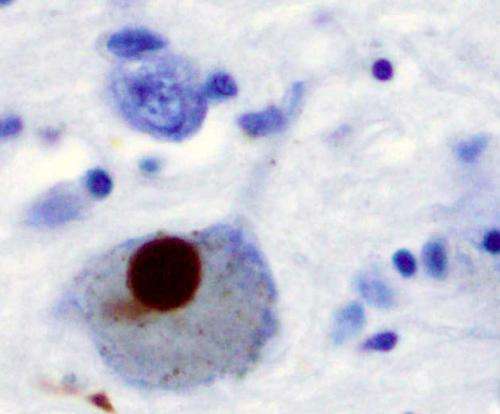Few mild-to-moderate Parkinson's disease patients suffer from malnutrition, yet almost one-third are at risk

Patients with Parkinson's disease (PD) can experience difficulties with food preparation and ingestion, which could contribute to poor nutrition and place them at risk for malnourishment. Published studies have also suggested that PD is associated with low weight, however, few studies included control groups. A report published in the Journal of Parkinson's Disease counters this conclusion in patients with mild-to-moderate PD, finding that the incidence or risk of malnutrition is no different for patients with mild-to-moderate PD compared to healthy controls.
"To our knowledge, this is one of the few studies worldwide that includes matched controls," says lead author Seyed-Mohammad Fereshtehnejad, MD, MPH, of the Division of Clinical Geriatrics of the Department of Neurobiology, Care Sciences, and Society of the Karolinska Institute, Stockholm, Sweden, and the Firoozgar Clinical Research Development Center, Firoozgar Hospital, Iran University of Medical Sciences, Tehran. "The results of this study indicate the same nutritional status among mild-to-moderate PD patients compared with healthy controls."
Many factors could lead to poor nutrition in PD patients, including motor difficulties with swallowing and chewing (dysphagia), cutting, and bringing food to the mouth. PD-related constipation and depression can also dampen a patient's appetite and change dietary habits. Consequences of malnutrition include higher medical costs, lower quality of life, and increased risk of morbidity and mortality.
To determine if PD patients are malnourished, 143 Iranian mild-to-moderate PD patients and 145 age- and sex-matched healthy controls were enrolled in this study. Any PD patients suffering from other chronic conditions influencing nutritional state, such as hypertension or diabetes, were following special diets, or exhibiting cognitive impairment were excluded.
Nutritional status was evaluated using the Persian version of the Mini Nutritional Assessment (MNA) questionnaire. In 10-15 minute interviews, patients answered 18 questions about appetite, dietary matters, feeding, self-perception of health, nutrition and malnutrition and were assessed for body mass index (BMI), weight loss, and arm and calf circumference. The maximum score on the MNA is 30; scores of 24-30 signify healthy nutrition, 17-23.5 indicate risk for malnutrition, and <17 suggests malnutrition.
The results indicated that there was no significant difference in mean MNA score between the two groups (25.14 for PD patients vs. 24.43 for controls). Three (2.1%) PD patients were malnourished and 37 (25.9%) were at risk for malnutrition. Similar findings were found in the control group: 3 (2.0%) were malnourished and 51 (35.2%) were at risk of malnutrition. In fact, mild-to-moderate PD patients did better than controls on some measures, including weight loss, psychological stress, protein intake, and consumption of fruits and vegetables. Mean calf circumference was significantly lower in the PD patients.
Nevertheless, the authors emphasize that the findings may be limited to patients with mild-to-moderate PD and caution that close to 30% of this patient population is at risk for malnutrition. "The low rate of severe malnutrition in our population may be attributed to the source of patient selection," says lead investigator John Lökk, MD, PhD, of the Department of Geriatric Medicine of Karolinska University Hospital, Stockholm, Sweden. "They were all recruited from an outpatient clinic and thus the more disabled in-hospitalized cases were not included, those which are probably at a higher risk for developing malnutrition." Dr. Lökk also suggests that the patients studied normally lived with their families, thus the patients might have benefited from the special care provided by their family members.
More information: "Prevalence of Malnutrition in Patients with Parkinson's Disease: A Comparative Study with Healthy Controls using Mini Nutritional Assessment (MNA) Questionnaire," by Seyed-Mohammad Fereshtehnejad, Ladan Ghazi, Motahhareh Sadeghi, Dena Khaefpanah, Gholam Ali Shahidi, Ahmad Delbari, and Johan Lökk (DOI: 10.3233/JPD-130323). Volume 4, Issue 3 (September 2014).















